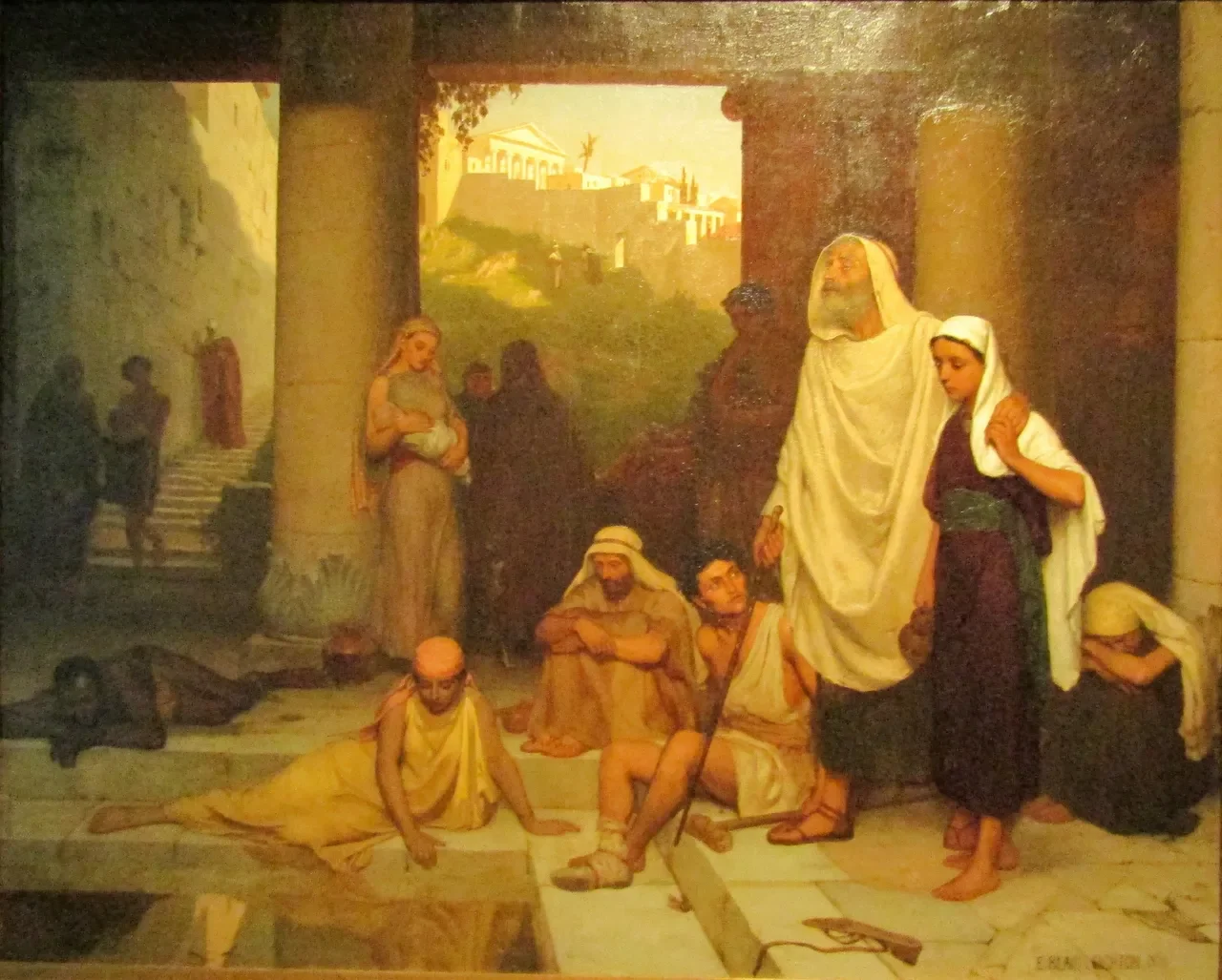Why this tragedy?

Jesus answered, Neither hath this man sinned, nor his parents; but that the works of God should be made manifest in him. Jn. 9:3
Whenever tragedy strikes ourselves or someone else, we are quick to wonder just how bad we (or they) have sinned. Karma must be at work! In the same way, when the disciples of our Lord passed by this man who had been born blind, they immediately jumped to the conclusion that this was a punishment for sin: "And his disciples asked him, saying, Master, who did sin, this man, or his parents, that he was born blind?" (ver. 2). But our Lord's answer is straight and to the point: they were wrong on both counts. Personal sin was not the explanation here.
What was the explanation? Our Lord's answer: "But that the works of God should be made manifest in him." One could ask why such a tragedy had to happen for the works of God to be revealed in him. This must have been a blow to his parents, and then to the man himself, who lived in a society with very few (if any at all) protections for the disabled. And yet, our Lord makes it very clear that this was not just an accident; it was not just the result of living in a broken world. There was a purpose behind it, and that purpose was the display of the power of God in and through the man.
Here is the reality behind the purpose: God's power is more fully revealed through the weak and broken and wounded and sick, than it is through those who need no physician. However, we must remember that it is not the weakness itself in which God is glorified, but in the healing. In other words, our brokenness is not an end in itself; it is a means to an end. It is a means that will bring glory to God. And it is a means that will enable us to enjoy the state into which our healing brings us in ways that we would not have been able to otherwise.
As with Job, our God is merciful and full of tender mercy (Jam. 5:11). He does not willingly afflict nor grieve the children of men (Lam. 3:33). For God's people, suffering will and must make way for perfect healing. The blind man regained his sight, but an even more full healing still awaits him at the resurrection of the dead. As the apostle Peter reminded his readers, "But the God of all grace, who hath called us unto his eternal glory by Christ Jesus, after that ye have suffered a while, make you perfect, stablish, strengthen, settle you" (1 Pet. 5:10).
Believer, there is no drop of suffering that is meaningless. God has a purpose in it for you, a purpose to glorify himself and to bring you forth as gold. It is a purpose to make you perfect and to establish you and to strengthen you and to settle you for ever. I know it is not enjoyable. Sometimes we wonder if we can bear up under it any longer. But remember that your healing is coming, perhaps in this world but certainly in the next. In the meantime, he gives grace. One day the Master will take away burdens of our weakness and replace them with joy and health and peace - joy and health and peace that will be enlarged not in spite of our suffering but precisely because of it. Let us waver not; rather, "let them that suffer according to the will of God, commit the keeping of their souls to him in well doing, as unto a faithful Creator" (1 Pet. 4:19).